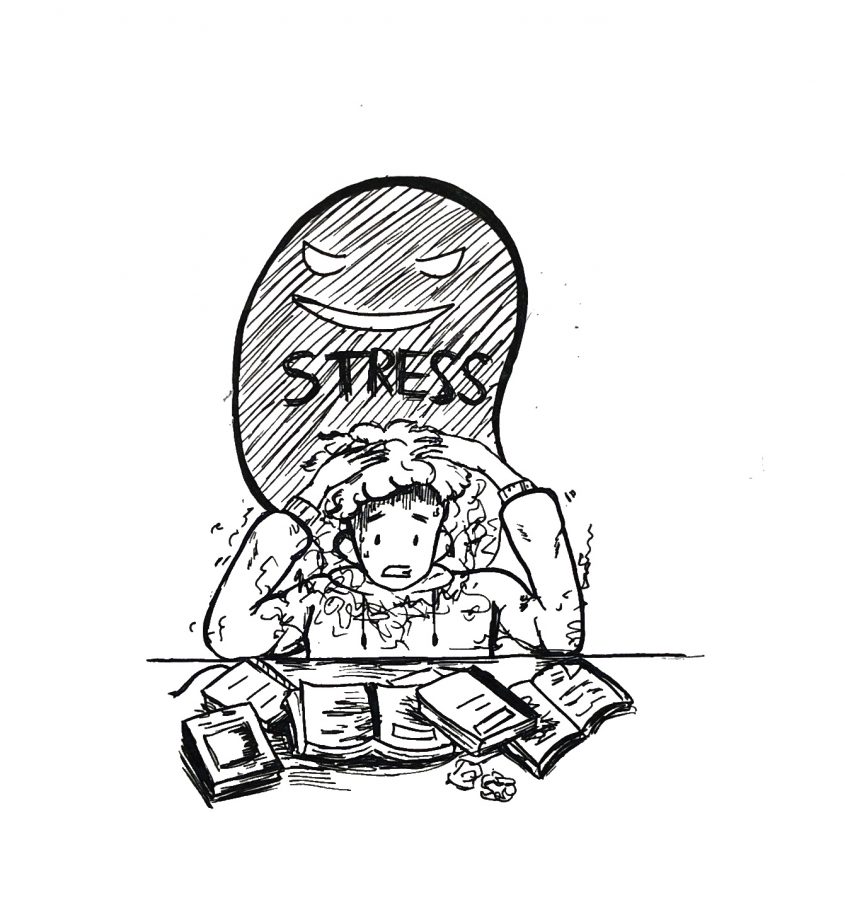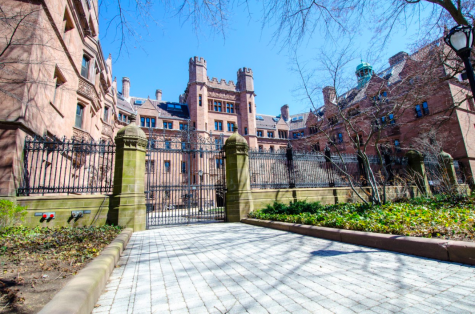Embrace the Groton Grind
During one of the first Chapel Talks I heard at Groton, Headmaster Temba Maqubela spoke about redefining the infamous “Groton grind” as the “Groton embrace.” The words did little to disguise the reality of Groton — Groton is a difficult school.
The natural question, given the increasing emphasis on mental health at elite institutions, is whether Groton has an obligation to change. Our school has safeguards against an overly severe workload — peer counselors, wellness, limits on major commitments, study hall for second to fourth formers, etc — yet none of these prevent many students from feeling tired and overworked on almost every day of the week.
I argue, however, that the school should not feel obligated to change this reality. We are one of the top boarding schools in the nation for a reason. The school provides the necessary resources for Grotonians to learn at the level we do, while we provide the effort required to take advantage of the opportunity of an exemplary education.
Furthermore, we knew what this school was coming in. It is impossible to have gone through the process of researching Groton, visiting, interviewing, and revisiting without having figured out that a school with a 12 percent admission rate, classes on Saturday mornings, and a reputation for extreme intellectualism is academically difficult. That is not to say that the only function of coming here is work, rather that the willingness to do so is essential to spending four years here.
The flip side involves those students who lack the ability or mental stamina to handle the demanding workload of the school. The answer to this argument is a difficult, yet necessary, pill to swallow: there is no way to substantially decrease the school’s workload without altering its character. Groton was based on the ideal of an elite student body willing to work hard in all aspects of life to better themselves and those around them. Though the makeup of the student body and the daily reality of the school itself has changed as time progressed, this fundamental goal has not.
If someone is incapable of handling the Groton workload without suffering from long-term mental health problems, they should go to a school more suited to their academic needs. This solution should not be forced upon a student nor treated as anything more than a last resort. That said, it is better for both the student in question and the school to move on rather than the school change on the student’s behalf. Coming from Groton, a student should be able to transfer to almost any school that may be a better fit.
For students with mental health problems solely caused by academic pressure, reducing the quality of Groton’s education will not benefit the student either. When we all accepted Groton’s offer of admission, we entered a social contract of sorts. We accepted intense coursework, Saturday classes, and everything else that comes with attending a top-tier school. In return, Groton is supposed to provide the best possible education while maintaining resources for students trying to cope with the school’s high standards. As difficult as it may be, if someone cannot fulfill their end of the bargain, the best solution is for the student to transfer schools. To force Groton to change would be to erase the intellectual character of the school that attracts so many students to its top-tier education in the first place.











